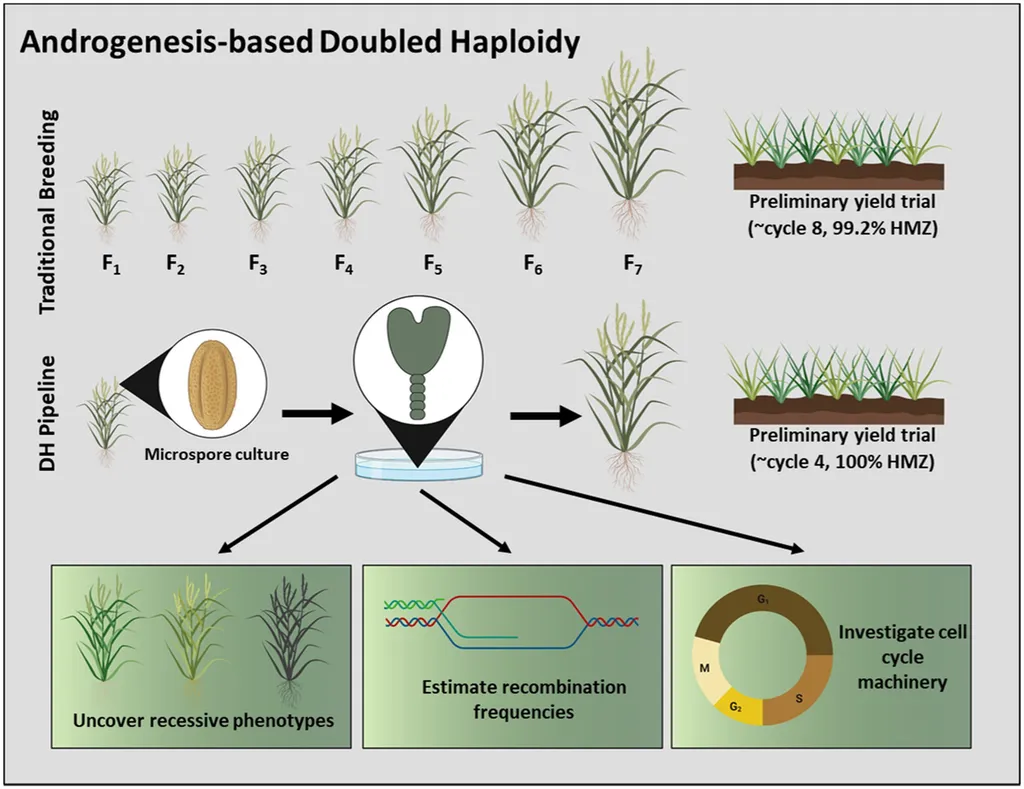In a significant stride for the agriculture sector, researchers have successfully applied isolated microspore culture (IMC) to create doubled haploid (DH) lines in ‘XiangQingCai’ (XQC) pak choi, a variety renowned for its unique fragrance. This breakthrough, published in *Scientia Horticulturae*, could revolutionize the breeding of fragrant pak choi, offering a faster and more efficient alternative to traditional self-pollination methods.
The study, led by Yue Gao from the College of Horticulture at Shenyang Agricultural University, focused on three XQC varieties: ‘yellow-leaf XiangQingCai’ (XQC-Y), ‘black-leaf XiangQingCai’ (XQC-B), and ‘Xiuhuajin’ (XHJ). The researchers found that while embryoids were successfully obtained from XQC-Y and XQC-B, the XHJ variety did not yield any embryoids. The embryoid induction rate varied significantly among the genotypes, with XQC-B showing a 3.5-fold higher rate than XQC-Y. This variability highlights the genetic diversity within the XQC varieties and the potential for targeted breeding programs.
“This method allows us to rapidly create pure lines with high uniformity and purity, which is crucial for hybrid breeding,” Gao explained. “The traditional self-pollination method is time-consuming and limits the speed of breeding new varieties. The IMC method offers a significant advantage in this regard.”
The study also revealed that the natural doubling rates exceeded 50% for both XQC-Y and XQC-B, indicating a high efficiency in producing DH lines. A total of 65 regenerated plants and 36 DH lines were obtained from the two varieties. This success paves the way for the development of new hybrid combinations with superior traits.
One of the most promising aspects of this research is its potential commercial impact. The ability to quickly and efficiently produce high-quality, fragrant pak choi varieties can significantly benefit the agriculture sector. Farmers can expect to see improved yields and better-quality produce, while consumers can enjoy pak choi with enhanced sensory qualities.
The researchers also conducted horticultural trait evaluations and aroma sensory assessments on the obtained XQC-B DH lines and hybrid combinations. These assessments are crucial for understanding the practical applications of the DH lines in commercial farming.
“Our findings provide new insights into the practical application of IMC technology in the breeding of fragrant pak choi,” Gao noted. “This technology has the potential to transform the way we approach pak choi breeding, making it faster, more efficient, and more precise.”
The study’s success in creating DH lines through IMC technology opens up new possibilities for the agriculture sector. As researchers continue to explore and refine this method, we can expect to see even more innovative developments in the breeding of fragrant pak choi and other crops. This research not only advances our understanding of plant breeding techniques but also offers practical solutions for improving agricultural productivity and quality.

